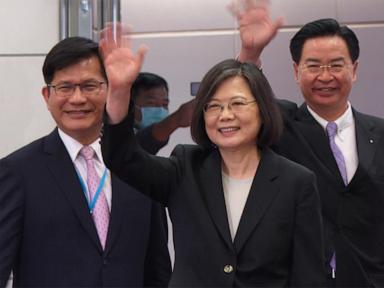Taiwan’s Foreign Minister, Lin Chia-lung, has arrived in the Philippines leading a delegation of investors, sparking a strong protest from China. The visit, which took place in early March 2024, has raised tensions between Beijing and Manila, particularly regarding their ongoing disputes in the South China Sea.
The delegation, which includes prominent Taiwanese business executives, aimed to explore opportunities in the semiconductor and other key industries. Two senior officials from the Philippine government confirmed Lin’s visit, stating it was conducted in a private capacity. They emphasized that Lin did not engage in any formal discussions with Philippine political or security figures during his stay, which lasted between two to three days.
Under the framework of a “One China” policy, the Philippines does not officially recognize Taiwan as a sovereign nation. China views Taiwan as part of its territory and has issued stern warnings against any official interactions between Taiwan and other countries. The Chinese government has repeatedly asserted its commitment to reunification, even suggesting the possibility of force if necessary.
The Philippine Department of Foreign Affairs reiterated its adherence to the “One China” policy, stating that the country maintains economic ties with Taiwan, including trade and tourism. The department clarified that no Taiwanese officials were acknowledged as part of the recent business delegation, implying that Lin’s visit was purely for business interests.
China’s Protest and Warning
Following Lin’s visit, the Ministry of Foreign Affairs in Beijing expressed its discontent. The ministry issued a formal protest, accusing the Philippines of providing a platform for “Taiwan independence” advocates. China urged the Philippines to cease actions it deemed detrimental to its core interests, warning that there would be consequences for what it termed as “trampling on China’s red line.”
The Chinese government has emphasized the importance of respecting its sovereignty and territorial integrity. “There is a price to pay for trampling on China’s red line, and all consequences arising therefrom will be borne by the Philippines,” a statement from the Chinese foreign ministry declared. This rhetoric underscores the high-stakes nature of diplomatic relations in the region, particularly regarding Taiwan’s status.
While the Philippines aims to balance its economic relations with Taiwan against the backdrop of its complex relationship with China, the visit by Lin Chia-lung highlights the delicate nature of these interactions. As tensions continue to simmer, the Philippines faces the challenge of navigating its foreign policy amidst pressures from both Beijing and Taipei.








































































